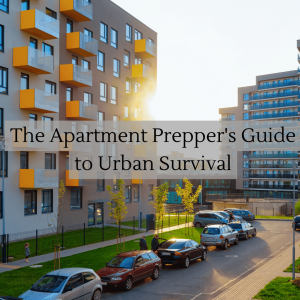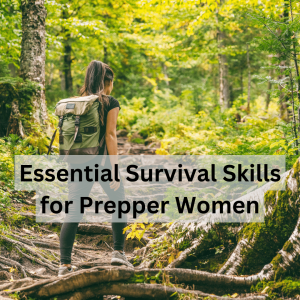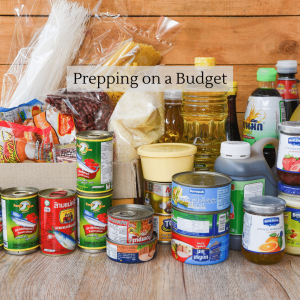In a world of uncertainties, being prepared for the unexpected is crucial. When it comes to Bug-Out Vehicle Essentials, having a properly equipped mode of transportation can be a lifeline during emergencies. Whether it’s a natural disaster, civil unrest, or a sudden evacuation, outfitting your bug-out vehicle with the right essentials can ensure you and your loved ones navigate through challenging situations and reach safety.
Bug-Out Vehicle Essentials: Preparedness on Wheels
- Reliable and Capable Vehicle: The foundation of a bug-out vehicle is a reliable and capable mode of transportation. Look for a vehicle that is sturdy, rugged, and preferably with four-wheel drive. SUVs, trucks, or off-road vehicles are often popular choices due to their versatility and ability to handle rough terrains. Ensure regular maintenance, keep the fuel tank filled, and have spare parts readily available.
- Emergency Communication Devices: During emergencies, communication becomes vital. Equip your bug-out vehicle with a reliable communication system such as a two-way radio or a satellite phone. These devices can help you stay connected with emergency services, family members, or other survivors, even in areas with limited cell phone coverage.
- Portable Power Source: Power outages are common during emergencies. To keep your bug-out vehicle powered up, invest in a portable power source such as a solar generator or a power bank. These devices can charge essential electronics like phones, radios, medical devices, or even power small appliances when needed.
- Emergency Medical Kit: Accidents and injuries can occur during emergencies, making a well-stocked medical kit essential. Include basic first aid supplies, such as bandages, antiseptic solutions, medications, and a comprehensive medical guide. Consider any specific medical needs of your family members and include necessary prescription medications.
- Food and Water Supplies: In a crisis situation, access to food and water may be limited. Pack a sufficient amount of non-perishable food items like energy bars, canned goods, and freeze-dried meals. Don’t forget to include a portable water filtration system or water purification tablets to ensure a clean water supply.
- Survival Gear and Tools: Equip your bug-out vehicle with essential survival gear and tools to handle various situations. Some important items to consider are a multi-tool, duct tape, rope or paracord, a fire starter kit, a compass, a flashlight with extra batteries, a foldable shovel, a firearm and amunition, and a reliable knife. These tools can help you navigate, build shelter, start a fire, and perform necessary repairs.
- Extra Clothing and Blankets: Pack extra clothing suitable for various weather conditions, including sturdy shoes, thermal layers, rain gear, and hats. Additionally, keep extra blankets or sleeping bags to provide warmth during colder nights or emergency shelter situations.
- Personal Hygiene and Sanitation Supplies: Maintaining hygiene and sanitation is crucial for your health and well-being, especially during extended periods in your bug-out vehicle. Include items like toilet paper, wet wipes, hand sanitizer, soap, and feminine hygiene products. Don’t forget to include a portable toilet or portable waste disposal bags.
- Navigation and Maps: In the event of road closures or GPS failure, having physical maps and a reliable navigation system is essential. Keep a detailed road atlas, topographic maps of your region, and a compass in your bug-out vehicle. Familiarize yourself with alternative routes to reach your planned destinations.
- Cash and Important Documents: In emergencies, access to banks or ATMs might be limited. Keep a stash of cash in small denominations for emergency purchases or services. Additionally, make copies of important documents such as identification cards, insurance policies, medical records, and contact information for family members. Store them in a waterproof and portable container.
Remember, preparation and planning are key to effective bug-out vehicle readiness. Regularly check and update your Bug-Out vehicle essentials supplies, practice driving and maneuvering your vehicle, and familiarize yourself with local emergency response plans. Being prepared with a well-equipped bug-out vehicle can provide you with the confidence and peace of mind to handle any emergency that comes your way.





